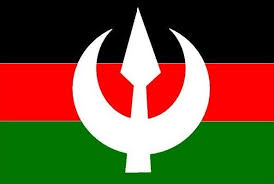
The political Situation in Sudan
August 2014
- The multiple failures of the Sudanese Regime isolated the government and put it under a threesome siege namely:
- A hopeless economic situation, because the Regime neglected the basic requirements of the economy, depending mainly upon the revenues of oil. Those revenues contributed about 90% of the external budget, and 50% of the internal budget. Since the oil in Sudan is mainly derived from Southern fields, the revenues dried up after Southern secession in 2011. The Regime made no preparations for that probability. After the event, the Regime decided upon a three years reform program (2011-2014), that program completely failed.
- The policies of the Regime have failed to resolve many security crises. Consequently, there are now six active war fronts facing the Regime.
- Since its independence in 1956, there has been only one UN Security council resolution on Sudan, accepting Sudan’s membership in the UN. Under the present Regime which came to power in a 1989 Coup d’état, the UN Security Council issued 61 Resolutions concerning the Sudan, a majority of them under chapter Seven of the UN Charter. Consequently, Sudan’s relations with the International community are highly strained because the Regime failed to comply with the UN Resolutions, particularly Resolution no. (1593).
- On June 2013 in a mass rally, the Umma National Party (UNP) declared that the Regime has come to the end of its tether, and that the only way forward for Sudan is a CODESA type Scenario, or failing that, a nonviolent uprising to liberate the country from the internal occupation of the Brotherhood based Regime.
On January 2014, the Sudanese president seemed to adopt the CODESA approach and initiated a National Dialogue towards that Scenario. However, since then his initiative proved to be a false dawn.
- Concerning peacemaking, the Regime has responded to two forums: one to negotiate with the SPLM-N under UN Resolution (2046), and the other to negotiate with the armed Darfur movements to persuade them to sign the Doha Agreement which was signed by some Darfurian groups in 2012. Both fora have so far failed to deliver any peace. For the past two years, therefore, the multi-fronted civil war escalated with atrocious consequences for the country, and particularly for the citizens of the regions concerned.
- As of mid-2014, it became clear that the National dialogue to resolve the crises in Governance adopted by the Regime is clinically dead, and the peace talks are equally stalled. In both cases, the main reasons for such drawbacks are the failure to recognize basic realities.
- The European Parliament invited Sudanese Political Parties and the Sudanese Revolutionary Front (SRF), which is a coalition of the groups of armed resistance to the Khartoum Regime, to a hearing. The UNP and the front responded to the invitation. Between the UNP and the SRF there were several previous contacts, therefore it was only natural that they avail themselves of the opportunity of meeting in Europe to further their ongoing dialogue. Their 7-8th Paris discussions resulted in the 8th August Paris Declaration.
- The UNP, and SRF represent a very broad political constituency, the Paris Declaration constitutes a historic breakthrough as it called for the most basic aspirations of the peoples of Sudan, namely:
- Eschew self-determination for any region in Sudan, and seek reform within a united Sudan.
- To stop the civil war in terms of comprehensive and just peace.
- Regime change for a system of Democracy, Human Rights, citizenship equality, and justice based administration of diversity.
- Involve Sudan’s Arab neighbors i.e. Egypt and the Arab league along with the African union.
- The means to such National aspirations are political and peaceful being: either a credible CODESA like comprehensive dialogue under neutral chairmanship and with credible credentials, or in the face of Regime intransigence to mobilize the Nation for a nonviolent
Since its Declaration, this joint statement received massive support from the peoples of Sudan. Some within the ruling Party and its affiliates have also read the writing on the wall, but, officially, the Regime rejected the Paris Declaration mainly because it occupied the moral high ground, and captured the National initiative from a Regime under multiple siege.
However, the Sudanese Regime has shown through its troubled history, that it usually rejects helpful new ideas, and later accepts them under pressure. They will face powerful internal pressure which will concentrate their minds to accept the Paris Declaration or face isolation as a preparation for a National uprising.
- Our appeal to the Regional and International communities is to study the Paris Declaration, to appreciate the breakthrough it constitutes for peace and democratization in Sudan, and so to bless it. If they are convinced of its effectiveness for peace, democracy, development, and stability in Sudan, they could help the process by speaking in coordinated terms to the Sudanese stakeholders that:
- A deal to forgive the Sudanese external debt within the HIPC program.
- A decision to lift the sanctions.
- A decision to defreeze the entitlements of Sudan in the KOTINU Agreement.
- Acceptance of Sudan in the International community.
Are all contingent upon Sudan resolving the conflict in governance on a National democratic basis, and stopping the current civil wars.
The Sudanese stakeholders should be addressed in such terms to realize that they will be rewarded for helping themselves towards peace and good governance.

